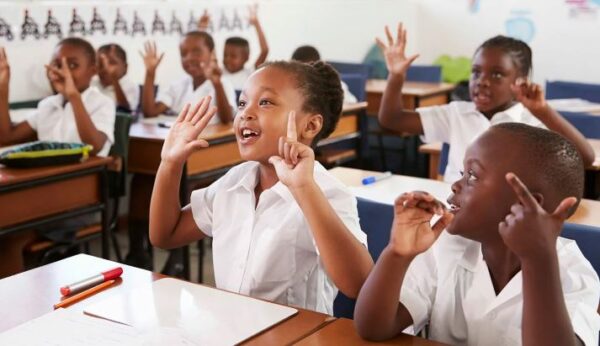Lifestyle
Here’s the cost of educating your child from Grade 1 to matric in South Africa

Many South Africans are struggling to pay for their child’s education amid the rising cost of schooling, a deepening cost-of-living crisis, and several years of economic recession.
In light of these costs, many parents are considering alternatives to traditional schooling, including the fast-growing options of online and homeschooling.
If your child is entering a public primary or high school, you can expect to pay, on average, between R24,408 and R36,072 for the year.
On the other hand, a private primary and private high school will set you back between R71,496 and R105,084 per annum.
The costs can be staggering when you consider the entire school career.
Starting Grade 1 in 2024, you could pay between R650,000 and around R2 million for public or private education, respectively, over your child’s entire schooling journey.
Public schools costs broken down
Christel House, an NGO in Ottery, Cape Town, provides all educational and extra costs (food, transport, extracurricular activities, health services, etc.) to their students at no cost to their parents. The annual cost to support each student is broken down as follows:
Sports & extramural activities: R729
Learning material, uniforms & support services: R3,368
Transport (two trips per day and extra-mural activities): R7,055
One of the significant challenges parents face is the annual increase in school fees.
In the Western and Eastern Cape, the annual fees for public high schools typically range from about R2,000 to R5,000. The exact amount can vary depending on the school’s resources and specific offerings.
Private schools
Parents at private schools in Gauteng are paying, on average, around R15,000 per month for school fees alone, with extracurricular activities adding an extra R5,000.
In Cape Town, private school fees range from around R7,000 for Grade 1 to R17,000 for matric.
Paul Esterhuizen, from educationalists and technologists who specialise in designing, developing, and delivering educational content, says: “For more than a decade now, the annual increase in school fees at fee-paying schools in South Africa has consistently averaged at more than 2% above the consumer price inflation rate (CPI).”
In 2024, average school fee increases have ranged between 6% and 10%, with the current CPI rate hovering around 5%. Historically, average school fee increases have settled just under 10% per annum.
Esterhuizen further notes, “It’s disturbing that an increasing number of debt-burdened households are unable to meet their school fee payment commitments.
“This is a trend that is notably worsening from year to year. School management teams find themselves under pressure to retain staff and resource quotas to meet education deliverables.”
Beyond tuition, additional costs also add up. Gayle van Niekerk, who has a child at a public school in the Western Cape, says her petrol costs to take her child to school amount to around R2,000 per month.
Esihle Poncana, whose child is in grade RR, shared her perspective: “My son’s school for the whole year is R22,000. With the inflation, this has caused an increase in the child’s lunch packs and needs. This leaves us with no choice because we want the best education for our kids.“
Siphokazi Marasha, who has a daughter in high school, detailed her expenses: “My daughter’s high school fees for the year are currently R4,000. I pay R1,200 per month for transport and roughly R200 for lunch weekly.
“For my two kids in primary school, their school fees total R14,000 per year, R12,100 for transport, and roughly R100 for lunch per child.”
Marasha also noted that inflation has increased not only school fees but also transport costs.
Online schooling
Mark Anderson, the co-founder and Principal of Koa Academy online school says: “Apart from the obviously costs of school uniforms and petrol for drop off, online schooling comes with a significant cost benefit. One of the most expensive elements of running a physical school is the infrastructure.
“A lot of private school fees go towards cricket fields, high electrical bills, building repairs, and sports facilities – whether your child uses them or not. One of the benefits of online schooling is that parents don’t have the additional expenses of infrastructure that your child is not going to use. You get a world class independent academic education at a much lower cost than traditional private schooling”.
Online schools like Koa Academy has built all of the cost of education into their monthly school fees. There are no hidden fees. Parents are not paying extra for textbooks, uniforms and academic platforms. Schooling for Grades 4 – 12 in 2024, range from R3,275 from grade 4, up to R4,350 per month for matric.










